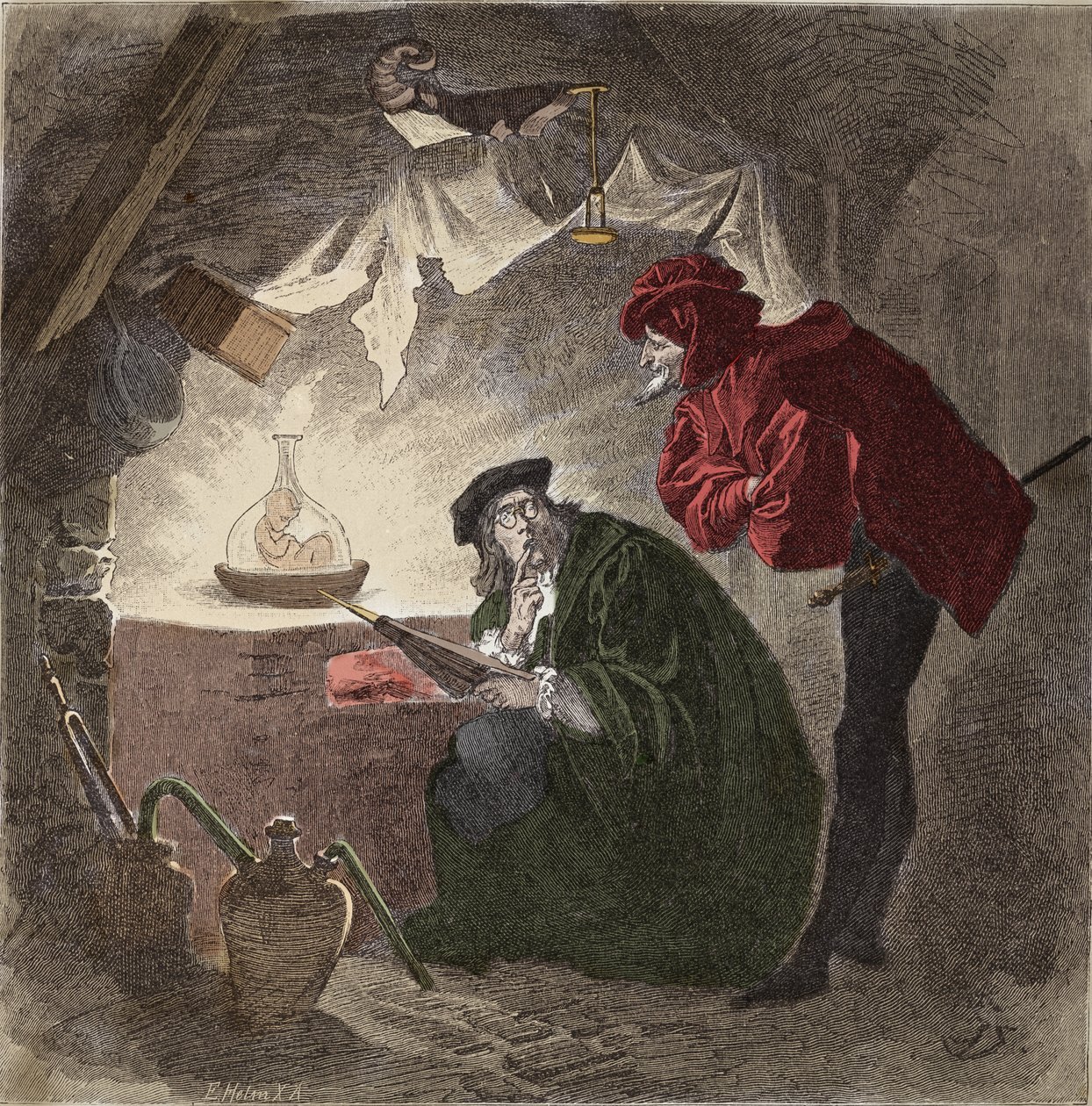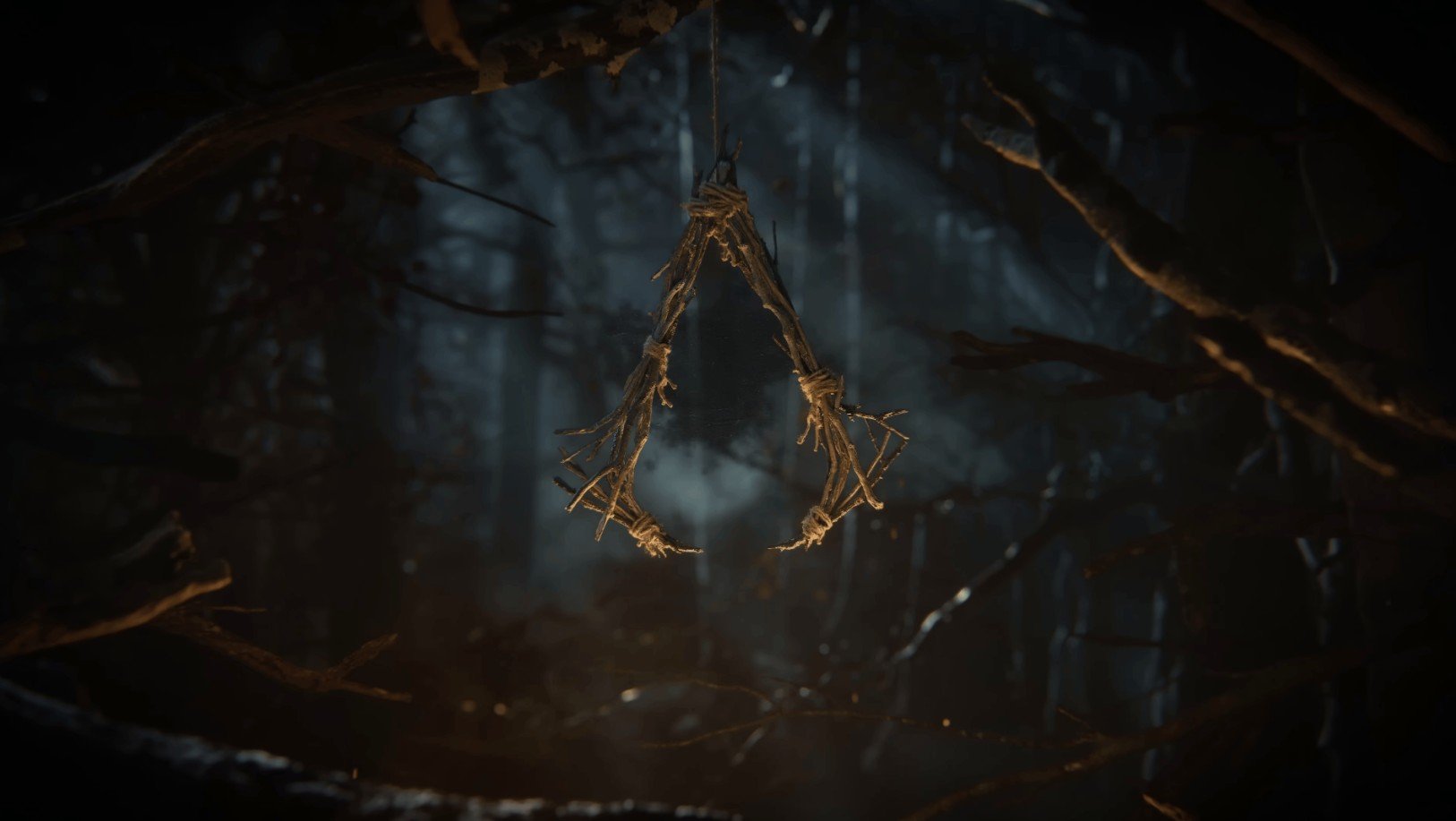While Assassin’s Creed Shadows is currently shining in the spotlight as the latest major release from Ubisoft’s long-running franchise, fans are already casting their attention toward the future. One upcoming title, in particular, has captured the curious minds of the community: Codename Hexe.
A Haunting Tease from the Shadows
First revealed during the Ubisoft Forward event in 2022, Codename Hexe started with a short, supernatural 30-second teaser. If you never saw it, you can watch it here:
It did not show much—just a dark forest, the Assassin’s Creed crest turned into a witches’ Talisman, strange symbols, and a pentacle. This was more than enough to cause general curiosity.
As the name suggests, Hexe (which means “Witch” in German) hints at a much darker, more occult-inspired take on the Assassin’s Creed universe. This is not just another historical backdrop, it seems to be much more than that.
What Does This Teaser Mean?
If you analyze the trailer, you can quickly uncover hidden messages. All the letters inside the Pentacle come from the so-called Alphabet of the Magi. This Alphabet was used during the 16th Century for Occultism and Talismans. Decoded, the circle contains the iconic Assassin’s Creed motto in German: “Wir Arbaiten Im Dem Twnckel um dem Licht zu Dienen“. This is written in old German, which was used during the 15th-16th century. It means “We work in the Dark to serve the Light“. It confirms the theory that whatever is linked to witches will also be linked to the Assassin’s!
The next part will refer to the inscriptions inside the Pentacle itself. You can make up three words if you go around in a circle from the outside towards the inside of the Pentacle itself:
- Mephisto: A demon.
- Rache: Mean Revenge/ Vengeance in German.
- Hwsa: Should be corresponding to Haus, which is “House” or “Home”.
These three words—Mephisto, Rache, and Haus—make a lot of sense together when you know a bit about German folklore and classic literature. One of the most iconic references comes from Goethe’s Faust, which tells the story of Johann Georg Faust, a scholar who makes a pact with a crossroad Devil.

In Goethe’s version, Mephistopheles (or Mephisto) represents the Devil. Faust agrees to sell his soul in exchange for unlimited knowledge and magical power. The deal? Mephisto will serve Faust for a set number of years. Once time runs out, he will claim Faust’s soul for eternity.
Mephisto is trapped inside Faust’s home (Haus) during a particularly fascinating moment in Faust I. A pentagram drawn in the doorway keeps him from leaving. Some interpretations suggest this act is Faust’s way of gaining a temporary upper hand, possibly even as a form of revenge (Rache). Pentagrams were also often used in popular folklore to ward off evil and protect the home from demonic forces, including the Devil himself.
Knowing all this, it is clear that Codename Hexe will definitely revolve around mystical powers. Witches, demons, and revenge will be the main themes!
A New Kind of Assassin?
Ubisoft Montréal, the studio behind Assassin’s Creed Valhalla, is behind Codename Hexe. According to Assassin’s Creed Executive Producer Marc-Alexis Côté, this title will be very different from previous entries. It promises a new type of gameplay experience.
Recent leaks reveal that the protagonist will be Elsa, who possesses supernatural powers—likely a witch herself, maybe? One rumored ability would be the power to control a cat. Maybe as a familiar or a new way to be stealthy.
When Can We Expect It?
Of course, take this with a grain of salt, as Ubisoft has not revealed any more information officially. Codename Hexe should launch sometime in 2026 or 2027. With such a mysterious theme, it definitely looks like it is going to be one of the most unique and intriguing Assassin’s Creed titles to date!



